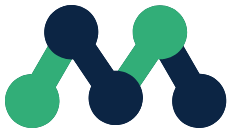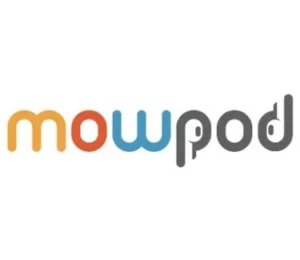WFH tips and a guide to starting a consulting business
Benjamin Shapiro
benjshap LLC

- Part 1Crisis Marketing: When we realized COVID-19 would effect the MarTech Podcast
- Part 2The MarTech Pod triage playbook for Marketing in a time of Crisis
- Part 3Rebuilding operational marketing habits in the wake of the Corona virus
- Part 4Pivoting your marketing strategies in the wake of a crisis
- Part 5 WFH tips and a guide to starting a consulting business
Show Notes
Quotes
-
“I think one of the things that helped us be operators is that you and Ihave been running our own independent businesses for a couple of years now and working from home isn’t necessarily something that is new for us.” -Ben “One of the things I want to spend a little time as we start to think about what the real impact of the coronavirus is, there are a lot of people that are getting used to working from home or that now is recently out of a job and are trying to think of how to provide value to the economy.” -Ben “The best things about having an independent business are the flexibility, freedom, and autonomy that you can have. To someone who is thrust into that environment without a lot of structure that can be a little intimidating.” -Todd“Something I realized that is important for me is to have a solid structure inplace and to frequently revisit my priorities, make sure I am thinking about the right things at the right time, working on it and personally just putting systems in place.” -Todd“A good friend of mine and somebody that has hired me as a consulting client a couple of years ago sent me a message on LinkedIn, saying ‘hey, I was just recently part of the cuts as my company is scaling back’ and he was a C-level executive at a growth stage start-up. So, lots of people are being affected by this.” -Ben “One thing I want to talk about in this episode is how to work from home and stay sane. It sounds like a dream at first but after a couple of months, it really does start to become difficult.” -Ben “It’s important to set yourself a time to be on and time to be off. When you wake up and do your morning routine, get finished with what you need to do to prepare yourself for the day. Eat. Move your body a bit. Change and get in the zone and once you start, maintain a focus even if that means moving to a different place of your home.” -Todd “Remember that you are building routines here and it can be very taxing mentally when you don’t have the separation from work and home. If you’re not setting up a routine or essentially putting up a firewall with what is your work routine and what is your home life, you’re always at work or you’re never at work.” -Ben“It’s like the highlight reel. We review what went well and what we could have done better and set ourselves up for the following week so that when we start on Monday, we don’t start likea deer in the headlight.” -Todd “Each week when I start my week I have an hour blocked off for weekly planning. No one can bother me, I go on a cold, dark place, (not literally) and I think about what I need to accomplish this week and make sure I haveenough time to actually execute them and sit down and actually start executing.” -Ben “Here are the basic steps that I went through after I left my last startup to start my consulting practice and it generated two years’ worth of revenue for me. The first thing I did was I sat down, thought about who I was in the marketplace and what are the things I enjoyed and doing and did effectively. What’s the value I can bring for companies in a short period of time.” -Ben “Once you have a website and some public-facing assets and you have spent a little time on how you are going to position yourself, you need to start thinking about your initial outreach. This is your launch strategy.” -Ben “I went through and downloaded my LinkedIn contacts, collecting names of people and their email addresses and I divided them into three groups. First is the influencers, people that have more experience in the industry than you do. The second group is your peers and the third group are the people that are already consultants, running similar businesses to the one that you’re on.” -Ben“I would send at least 10 -20 outreach emails per week. I would start by emailing the influencers first. The real takeaway here is not you are going to ask for a favor. You are going to ask for advice.” -Ben“Reach out to influencers, ask them for advice for where you should head and talk to them about some of the things that you can deliver to an organization as a consultant that will solve some specific pain point and they will be ableto make some connections for you.” -Ben “If you go through and reach 10 -20 people per week, you will start developing a pipeline and the trick is, build yourself a CRM so you can keep track of those conversations and stay on top of them. You can email people three times before they get pissed off.” -Ben “For us to get through this collectively, it’s important to think about the people first. This is a global health crisis and it is obviously impacting business but the business is secondary to people’s lives, and people’s livelihood in some cases are at stake if there’s anything we can do for you, reach out to us and send us an email.” -Ben
- Part 1Crisis Marketing: When we realized COVID-19 would effect the MarTech Podcast
- Part 2The MarTech Pod triage playbook for Marketing in a time of Crisis
- Part 3Rebuilding operational marketing habits in the wake of the Corona virus
- Part 4Pivoting your marketing strategies in the wake of a crisis
- Part 5 WFH tips and a guide to starting a consulting business
Benjamin Shapiro
benjshap LLC

Up Next:
-
Part 1Crisis Marketing: When we realized COVID-19 would effect the MarTech Podcast
Each day this week, we're going to publish an episode that walks you through the five steps that we've taken to evaluate, triage, secure, pivot, and scale our business in this time of crisis. Joining us is Todd Hines, the Head of Content Production at MarTech podcast. In part 1 of our conversation, we are going to discuss how we evaluated the issues that are happening around us and what the impact would be in our business.
Play Podcast -
Part 2The MarTech Pod triage playbook for Marketing in a time of Crisis
Each day this week, we're going to publish an episode that walks you through the five steps that we've taken to evaluate, triage, secure, pivot, and scale our business in this time of crisis. Joining us is Todd Hines, the Head of Content Production at MarTech podcast. In part 2 of our conversation, we are going to discuss how we're triaging some of the problems created by the outbreak of the coronavirus.
Play Podcast -
Part 3Rebuilding operational marketing habits in the wake of the Corona virus
Each day this week, we're going to publish an episode that walks you through the five steps that we've taken to evaluate, triage, secure, pivot, and scale our business in this time of crisis. Joining us is Todd Hines, the Head of Content Production at MarTech podcast. In part 3 of our conversation, we discuss how we are setting and trying to execute our short term plans.
Play Podcast -
Part 4Pivoting your marketing strategies in the wake of a crisis
Each day this week, we're going to publish an episode that walks you through the five steps that we've taken to evaluate, triage, secure, pivot, and scale our business in this time of crisis. Joining us is Todd Hines, the Head of Content Production at MarTech podcast. In part 4, we discuss thinking about the long-term game.
Play Podcast -
Part 5WFH tips and a guide to starting a consulting business
Each day this week, we're going to publish an episode that walks you through the five steps that we've taken to evaluate, triage, secure, pivot, and scale our business in this time of crisis. Joining us is Todd Hines, the Head of Content Production at MarTech podcast. In part 5 of our conversation, we are going to talk about some of the things that we've learned running our own independent businesses.










